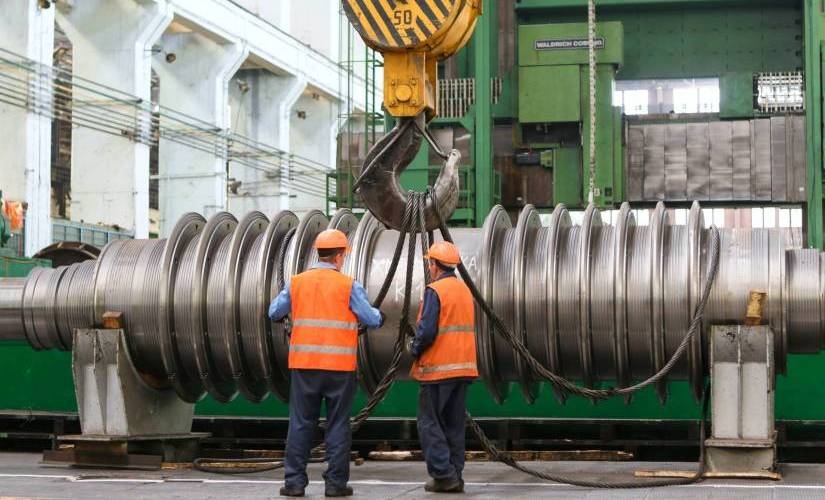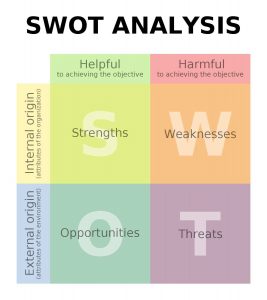What is the Role of IoT in the Manufacturing Sector?

The development of many industries, notably the manufacturing industry, is significantly influenced by technological improvement, especially the internet of things which has led to significant advancements in the manufacturing industries.
Technological revolutions have been frequent in the manufacturing industry, with the development of equipment to lessen the workload of humans and eliminate the need for manual labor while boosting efficiency.

Artificial intelligence (AI), the Internet of Things (IoT), and big data analytics are all technological innovations in the industrial sector. The IoT has been very beneficial, especially for industries that need rapid development and high-quality products.
This piece will examine the Internet of Things applications in the industrial sector. Let’s begin with defining IoT to have a better understanding.
What is Inter of Things in the manufacturing sector?
The Internet of Things is a network that connects gadgets such as computers and electrical software devices with sensors and other technologies built to exchange data online.
In line with the expanding digitization of numerous operations across many industries, the IoT is swiftly increasing its significance in manufacturing. Therefore, implementing IoT might increase productivity to new heights, supporting industrial sectors in achieving their financial goals and preserving their competitiveness in the market.
IoT applications in the industrial sector?
IoT is being used by manufacturing facilities in a variety of methods and departments to streamline the production process. Technology aids in managing warehouses, tracking development cycles, and keeping an eye on stocks.
Let’s examine a few areas in the industrial sector where IoT is being utilized to boost production and efficiency.
-
Supply chain management.
GPS is used by IoT devices to track a variety of goods and their delivery effectively. Sensors are attached to products using IoT technology, allowing businesses to accurately predict delivery times and eliminate delivery-related issues.
Additionally, the IoT adds Enterprise Resource Programs (ERP) to do away with the requirement for manual operation documentation. Cross-channel visibility in the management departments is made possible by ERP, which aids stakeholders in assessing production activities.
-
Quality control.
The status of the machinery, settings, and performance, which collectively have a direct influence on the quality of goods, may all be tracked by a unique sensor that manufacturers can integrate into IoT networks.
IoT networks disclose any faults in real-time, enabling operators to take the appropriate action to stop quality from declining, which might influence the sector’s profitability due to manufacturing defective products.
-
Workshop monitoring.
Manufacturing industries may access, identify, and regulate the manufacturing execution process with the aid of IoT, enabling the sector to keep track of the production process from the beginning to the finished product.
IoT also helps to discover potentially tricky circumstances, machine problems, and improper staff behavior that might damage. AI, cutting-edge sensors, and cameras found in IoT systems enable all of these.
-
Digital Twins.
A product’s digital twin is created due to the Internet of Things. The management can utilize it to collect data on a product’s digital twin to evaluate its efficacy, efficiency, and accuracy.
Additionally, Digital Twins improve processes like asset management and failure management, helping the sector predict baseline completion and effectively finish the production before deadlines.
-
Inventory management.
Inventory tracking may be streamlined and automated with IoT technologies. Operators may remotely track each inventory item’s status, position, and movement, which helps to shorten the time between placing an order for inventory and having it delivered.
What are the benefits of IoT in manufacturing industries?
The industrial sector is seeing an increase in the adoption of IoT technologies since they enhance corporate operations on many levels. Here are a few advantages of IoT for the industrial sector.
-
Product quality improvement.
Sensors enable IoT-powered devices to monitor changes in machine setups and settings. In the event of an error, sensors warn operators, who may quickly address the problems to prevent a drop in product quality.
-
Better forecasting.
IoT sensors make it possible to continually monitor the condition of machinery and alert employees when a repair is due. It helps the operators to avoid spending money when it is unnecessary and to detect urgent maintenance quickly.
-
Enhance workplace safety.
IoT technologies assist in tracking worker behaviors that may cause accidents. With sensors and cameras for surveillance, it can also keep an eye on various external conditions and alert users to situations that may result in significant incidents like a gas leak.
-
Minimizing the cost of production.
IoT technologies promise to reduce machines’ operating costs and downtime while maximizing asset and inventory management. These help the business concentrate on selling the items rather than just being concerned with doing these activities.
-
Intelligent decisions.
Managers may base their choices on more accurate information and take action to increase productivity as IoT sensors collect all essential data linked to the operation of your equipment.
Other benefits of IoT are:
- Improved control over the world’s supply chain.
- Client satisfaction
- help in Saving time.
- Command over articular systems.
- Make it possible for makers and machines to communicate.
What are some challenges with adopting IoT solutions in the manufacturing industry?

Despite all the advantages the Internet of Things may bring to the enterprise, several sectors choose to put off using new technologies. The reasons why they do so are as follows.
-
Maintaining connectivity.
IoT technology is increasingly being used in the manufacturing industry as it comprises several intelligent devices and sensors that must be utilized continuously for data to be obtained and essential processes to be performed.
A strong Wi-Fi connection is required to keep the production and distribution floors operating efficiently. However, one of the primary problems with these systems is ensuring connection quality isn’t affected by network congestion brought on by so many gadgets.
-
It requires education and training.
With all the moving components in the IoT, it may be tricky for industrial companies to accept new technology without enough training. Therefore, proper training and know-how are crucial for any business implementing IoT technology. If any online training and certification (examtesting dot com) programs are being given for the usage of IoT, industrial companies can use them.
-
Maintaining the health of networks through monitoring.
With IoT, keeping an eye on the network to ensure it is functioning well may be a persistent problem since manufacturers want regular insight into the network’s availability, reliability, and performance. In addition, any systemic influence can affect the entire sector, necessitating constant attentive supervision.
-
Collecting best practices and using data analytics.
Best practices for data collection and analytics must advance with the technology. For insights to be delivered, devices must cooperate and interact with one another. Team members may often examine these insights via a cloud-based dashboard.
The entire process depends on company-wide activities, which may be highly expensive, including data cleaning and storage, integrating new technology and information streams, and more.
-
Data security concerns.
The IoT has created new security issues, such as the possibility of cyberattacks increasing as IoT technologies are integrated into business operations. As a result, industrial organizations need to make sure that they implement upgrades to remedy flaws.
Conclusion
Manufacturers can solve various industrial issues through the Internet of Things. For example, predictive maintenance decreases machine downtime inside industrial facilities, provides asset management that boosts machine efficiency, and helps with inventory control.
We may thus conclude that IoT is the future of manufacturing since, despite the difficulties, it benefits both producers and consumers.
Inner Image Credit: Provided by the Author; Thank you!
Featured Image Credit: Kateryna Babaieva; Pexels; Thank you!
The post What is the Role of IoT in the Manufacturing Sector? appeared first on ReadWrite.
(22)
Report Post







